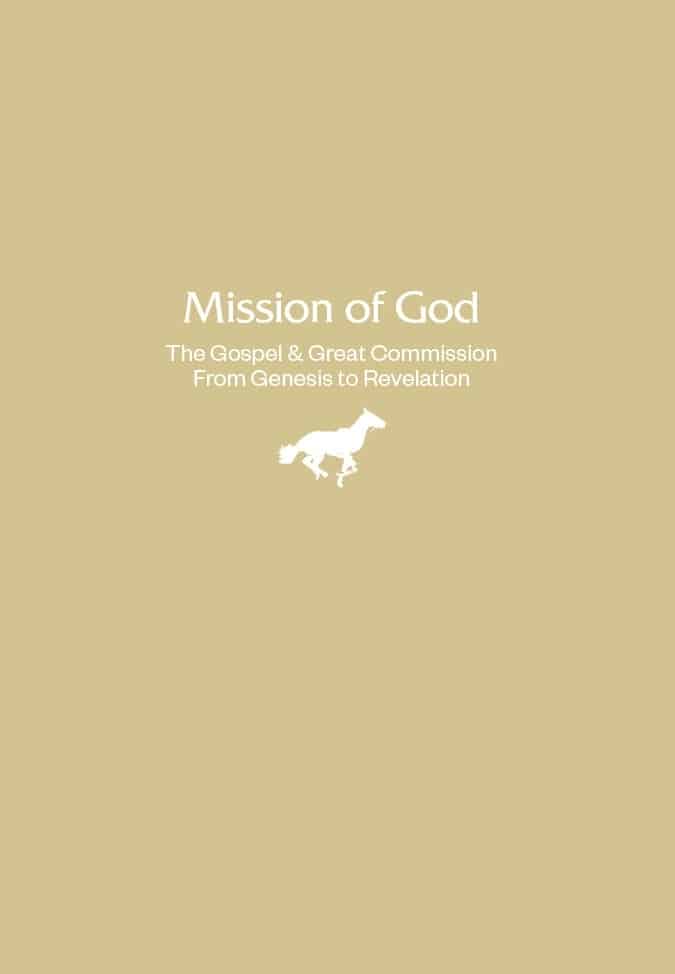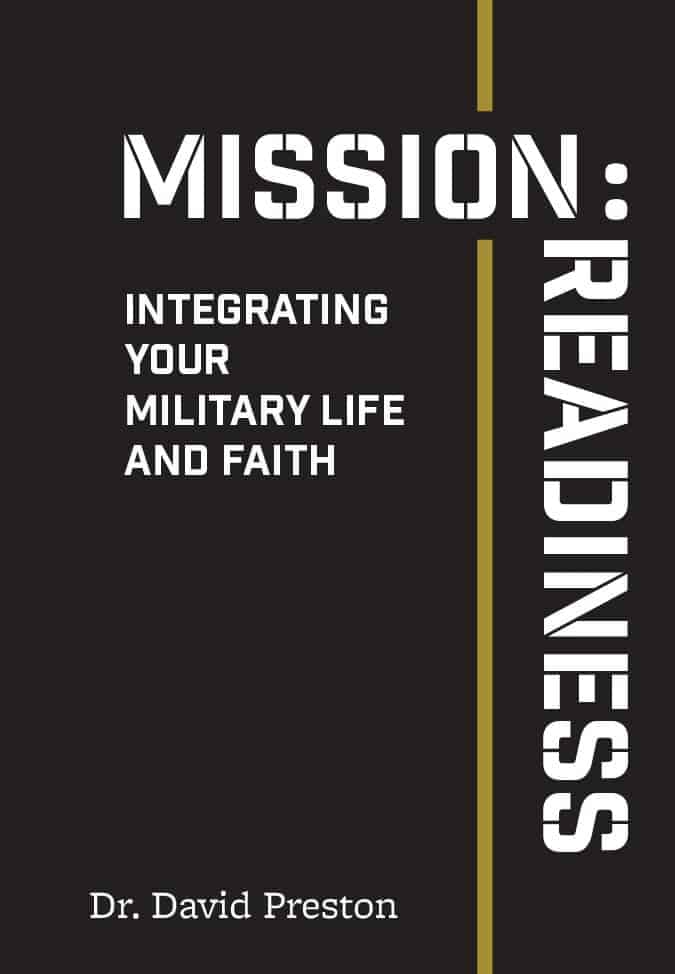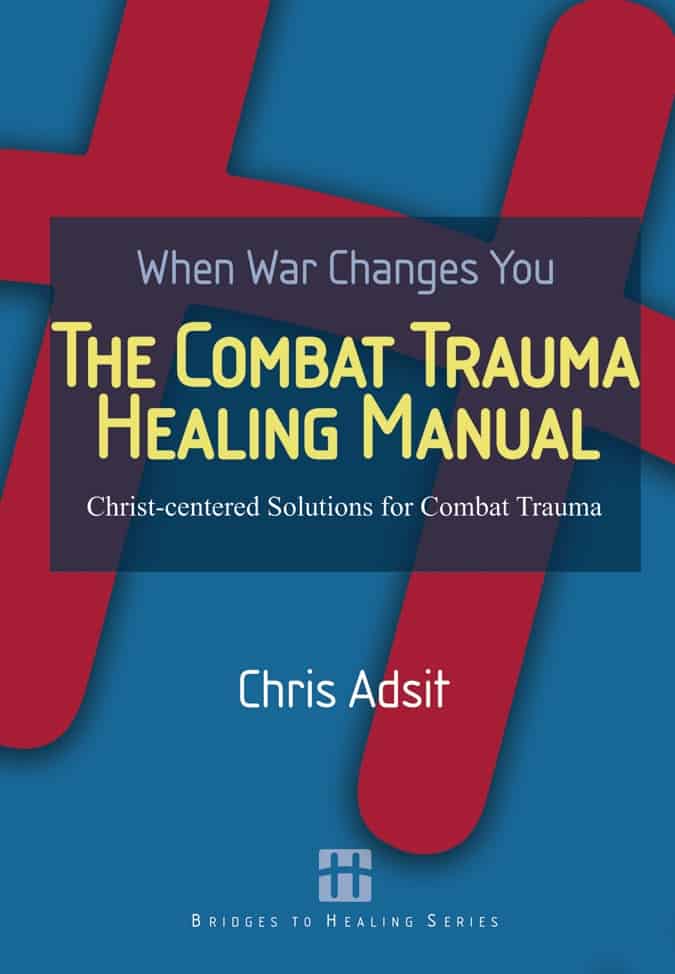The Gospel as Fuel for Discipleship

Over the years I have had the privilege of introducing many students to Jesus Christ and helping them grow as His disciples. I have witnessed the vicissitudes of great growth and the valleys of defeat and failure in the spiritual development process.
There are things now that I would do differently, focus on more, sweat less, and leave in God’s hands more readily. I want to share a little of what I have learned over the years about the gospel and discipleship.
Above all else, I have seen that spiritual growth requires establishing a solid foundation and building on that foundation. It is living and breathing the basics. The word disciple means that we are people who spend our lives apprenticed to our master, Jesus Christ. We are discipling and being discipled to be lovers and learners of Jesus. He is our foundation and our focus.
Yet spiritual growth is a marathon not a sprint. This reality leads me to what I now emphasize with greater fervor in my discipleship. In recent years, I have had a paradigm shift as a disciple and discipler with some ah-has and an uh-oh.
The ah-ha: the gospel is the fuel and path to transformational growth. The gospel is not just something I share with the lost, but it is what I apply every day to my life as well.
The uh-oh: as Christians we often misunderstand it, misapply it or even neglect it in our spiritual journey.
How can we enhance the ah-has and lessen the uh-ohs on our discipleship journey? I invite you to consider what I see as four significant areas of discipleship: the divine portrait, the potential pitfalls, the powerful provision, and the practices for growth.
The Divine Portrait
The context of our discipleship has to be placed in the bigger picture of God’s story. God is in the restoration business. He is recovering lost people and lost lives—including yours and those you disciple.
To grow, we must first understand the way our lives with God were designed to look, how sin destroyed that relationship and how restoration is available through redemption. We must know the divine story to see where our stories fit.
Paul tells us in 2 Corinthians 5:18-19,
“All this is from God who reconciled us to himself through Christ and gave us the ministry of reconciliation: that God was reconciling the world to himself in Christ, not counting men’s sins against them. And he has committed to us the message of reconciliation.”
The heart of the gospel and discipleship is God reconciling all things back to the way they should be.
In How People Grow, Drs. Henry Cloud and John Townsend note that the essence of spiritual growth is about returning to the life God created for people to live. What is the life God created people to live? His story in Genesis reveals that God is our Creator. He is the source of life and giver of good things.
Second, God created us to be in relationship with Him and with each other. We were not intended to be alone. Third, God created humans to submit to Him so that they could experience life. Fourth, God’s role and the roles of man were distinct in His ordering of creation.
Initially, there was no confusion in these roles. God’s role was to be our source and provider and we were to depend on Him. God as Creator was to be in control, we were to yield to His control and have self-control. God was the judge of life and we were to experience that life, intimacy and relationship. Ultimately, God made the rules and designed reality and we were to obey them and live in that reality.
We were created to live in this beautiful portrait. However, the fall of man reversed God’s created order. Genesis 3 reveals that man became independent from the source of life, lost his relationship with God and with each other, and tried to usurp God’s design and become his own lord.
In essence, man reversed the roles and now reaps the consequences. First, our tendency to be our own source has resulted in dependence on ourselves. This leaves us hungry and empty, turning to lust and idolatry instead of real life.
Second, our desire for control has made us try to control our world and each other, while losing control of ourselves. Third, our desire to be the judge of life has resulted in judging others and ourselves. Fourth, our desire to be God has resulted in creating our own rules and reality.
Life was lost, yet God did not allow things to stay that way. God in Christ is reconciling all things back to the way it is supposed to be. In redemption, man is brought back to God through Jesus as the source of life. Man is brought back into relationship with God and one another. Finally, our roles are restored back to the way they were designed to be under His lordship.
Redemption through Christ results in a growing heart and redeemed life. First, we give up our independent posture toward God and become dependent on Him. Second, we cease trying to control things and yield, trust and rest in God’s control and sovereignty.
Third, we give up the role of playing judge with others and ourselves and instead receive grace and minister grace. Finally, we stop trying to redesign life our way and return to living the life God designed us to live.
Discipleship is essentially following Jesus in this life of redemption and restoration and helping others walk that road too. It is living out God’s design for life so that He is glorified, as we are satisfied in Him. So if that is the way God designed life to work, why might there be so little transformation? Let’s look at some potential holes in our discipleship process.
For several years I was involved in a group that studied leaders at risk—individuals in ministry who had major moral failures. We identified the common denominators or red flags in their lives that contributed to their falls.
The main red flags included issues of power and control; an extreme focus on ministry success to the neglect of the heart; and a tendency to be isolated and disconnected from the life of God and people. These leaders were not experiencing the gospel that they had been called to preach.
What were some of the pitfalls to avoid? First, over time there was a subtle neglect of the heart. This could be seen in an inordinate focus on ministry success, leadership position, and power.
God warns us in Proverbs 4:23, “Above all else, guard your heart, for it is the wellspring of life.” Our ministry flows from our heart. Paul in 1 Corinthians 13 indicates we can have great success in ministry and yet have no love or grace in our hearts.
Second, there was a failure to understand and apply the portrait of God’s design for life. This could be seen in a tendency to be involved in ministry activity, yet isolated from the life of God and relationship with others. Also, there was the leader’s need to be in control and not be dependent on others for ministry or life.
Third, familiarity can breed unfamiliarity. C.S. Lewis in The Great Divorce comments, “There have been some who were so occupied in spreading Christianity that they never gave a thought to Christ.”
Fourth, we use phony remedies for growth. In his book The Spirit of the Disciplines, Dallas Willard makes the point that spirituality wrongly understood or pursued is the major source of human misery and rebellion against God.
A professor and friend, Steve Childers, cautions us to beware of “counterfeit remedies” in our pursuit of heart and character growth. One must guard against an unbalanced or deficient approach to growth.
There are three counterfeit remedies: intellectualism, emotionalism, and moralism.
Intellectualism dismisses transformation of heart and places an inordinate focus on what one believes. Emotionalism or passivism places an extreme focus on affections or experiences. Moralism or legalism places inordinate focus on one’s behavior and willpower.
Faced with a lack of transformation the moralist may “just try harder.” This leads often to cycles of despair and denial. This is what Paul notes in Galatians 3:3 as “works righteousness.” Each of these approaches misses the critical element of the transformational power of the gospel and the cross.
Though Jesus calls us to be holy and pursue righteousness, He cautions us to beware of the counterfeit approach of the Pharisees (Matthew 5:20). Paul notes,
“They have a zeal for God, but it is not enlightened. For, being ignorant of the righteousness that comes from God, and seeking to establish their own, they did not submit to God’s righteousness. For the Messiah is the end of the law, that every one who has faith may be justified” (Romans 10:2-4).
What is wrong with this kind of spirituality? It is not enlightened. Rather than seeing our great weakness and enormous debt of sin, it relies on our moral strength and standing. It does not receive through faith in the Messiah, but instead tries through effort and willpower. In all his preaching on the kingdom, Jesus did not look for moral achievements in His followers, but for faith in Him. That is foundational to spiritual growth.
Posture of a Heart That Grows
Believers cannot afford to neglect the heart. What is the posture of a heart that receives Christ and grows? The heart that grows is characterized by poverty of spirit. There is an admission of total need and dependence.
God honors humble hearts and opposes the proud (1 Peter 5:5-6). He declares in Matthew 5:3, “blessed are the poor in spirit.” He applauds the posture of the tax collector who declared, “God, have mercy on me, a sinner” while condemning the proud posture of the Pharisee (Luke 18:13). “Poor in spirit” refers to a heart attitude of empty-handedness, which is the opposite of spiritual pride or self-sufficiency.
One Friday evening, I pulled into my driveway, entered my home and had hardly dropped my computer bag when there was a knock at the door. It was my neighbor.
With tears rolling down his face, he said, “Marc, I need help. Sherry is divorcing me.” I was shocked, not so much about his message but that he was there. In the five years we had lived next door, he politely resisted any dialogue about family, life or spiritual things. Now his vulnerability and open hearted were striking as he wept before me.
He began to open up to me about his failure and concluded by saying, “She says she doesn’t love me and hasn’t for a long time.” He was a picture of poverty of spirit, which proved to be the beginning of my friend’s growth in Christ.
How does a leader cultivate a heart that is humbly postured? First, we must get reacquainted with our lostness. Richard Lovelace notes, “The shallowness of many people who are ‘saved’ may be due to the fact that they never known themselves to be lost.” Jesus said, “I have not come to call the righteous but sinners to repentance” (Matthew 9:13).
Second, we need to learn to beg. Martin Luther said, “We are all beggars.” We need to pray that God would grant us a fresh awareness of our need for the gospel and that we would come to Him continuously like little children in need of His love and grace.
Third, we are called to surrender. Surrender means coming to a place where we agree with God that what He says about us is true. We were meant to live by His system and design: dependent on Him for life, for righteousness, and resting in His control. Each day we need to return to His design and prayerfully surrender to it.
Provision and Power For a Growing Heart
John Owen realized that the essence of sanctification is “nothing but the implanting, writing, and realizing of the gospel in our souls.” As followers of Christ we must discover the gospel’s power each day.
Perhaps the familiar has become unfamiliar to you. The gospel is for the lost and the found. It offers salvation not only from sin’s penalty (past), but sin’s power (present) and sin’s presence (future). The goal of the gospel is not merely to forgive repentant sinners, but to change them into true worshipers of God and authentic lovers of people.
Tim Keller coined this definition of the gospel: “The gospel is that you are more sinful and flawed than you ever dared believe yet can be more accepted and loved than you ever dared hope at the same time because Jesus Christ lived and died in your place.”
Practices Of a Growing Heart
Jonathan Edwards declared, “The secret of the Christian life is to allow the gospel to filter into your life both rationally and experientially.”
Let’s look at the words of Paul to see how the gospel gets filtered down into our lives. “So then, just as you received Christ Jesus as Lord, continue to live (walk) in Him, rooted and built up in him, strengthened in the faith as you were taught, and overflowing with thankfulness” (Colossians 2:6-7).
First, the heart that grows believes and walks in the gospel. The gospel is not just a gate I walk through once but a path I should walk each day. Remember the timeless blessings of the gospel.
I AM FORGIVEN! God canceled my debt I am not in jail. I am released (Colossians 1:13).
I AM ACCEPTED! God is for me. To be accepted means all of who you are, good and bad, is received by another without condemnation. “There is now no condemnation for those who belong to Jesus” (Romans 8:1). Christ’s perfect righteousness has been credited to my account through Him (2 Corinthians 5:21). God is truthful with me. He reveals my sin to me but He is not angry with me. As a result, I can be honest with God without fear of rejection. I can rest in Him and trust Him.
I AM UNITED! Because we are united to Jesus through faith, God accepts us each day as whole and complete, even though our lives may still be full of inconsistencies.
I AM ADOPTED! I am a child of God with all the rights and privileges of a son (1 John 3:1-2). I do not have to control life, trying to make it work. I have access to the Creator and the source of life. I have entrée to the lap of my father, His provision and His discipline for my growth.
I AM FREE! I have a new master and the gospel has the power to change me. There is hope for change. I am free from the bondage to the law. I do not need to prove myself worthy. The law tutors me to Christ and replaces bondage with an appeal to living on the basis of relationship rather than performance and good works.
I AM NOT ALONE! I have His presence through the Holy Spirit. He is able to counsel, comfort, and empower me to live the life God designed for me (John 16:5-15). As I live by and depend on the Spirit, I will not gratify the desires of the sinful nature (Galatians 5:16).
The gospel is the fuel of a redeemed life. The gospel moves me to God, life, and back to his His divine design. We fill our tanks with that fuel by believing and walking in it. As believers, when we “rehearse and delight in the many privileges that are ours in Christ,” we are in effect preaching the gospel to ourselves.
In the daily grind of life, I remind myself of the gospel. When I am feeling like a failure and hearing words of condemnation, I remind myself that I am accepted by Christ’s perfect obedience. When I feel fearful that my financial needs will not be met or that God wants to punish me, I cling to my adoption, recognizing I am a son, not an orphan. When I feel like I am held in bondage to lust, I embrace my redemption.
I have been delivered, am not alone and have others to run to with my needs.
As the gospel filters into our lives, it will expose sin and idolatry, which leads us to a second practice of a growing heart. The heart that grows repents and believes the gospel.
Jesus announced, “The time has come. The kingdom of God is near. Repent and believe the good news!” (Mark 1:15).
Martin Luther notes that when Jesus said to repent, “He willed that the whole life of believers should be one of repentance” (first of Martin Luther’s ninety-five Theses nailed to the Wittenberg Door in 1517).
What are we to repent of? One of the greatest threats to a cohesive heart is idolatry.
Idolatry can be defined as seeking something other than God as the source of life and depending on something other than God and His provision for life. Paul believed a primary reason hearts are not transformed is that the affections of people’s hearts have been captured by idols. These grip them and steal their heart’s affection away from God (cf. Ephesians 5:3-5).
How are we to deal with idols? Jesus says we are to apply the practice of repenting and believing. Paul sees repentance and faith as two sides of the same coin (Ephesians 4:22-24).
Repentance is a change in direction, moving away from the destructive path back toward God’s ways of life. Paul does not tell people to do the right thing because it is right, but so they will live (Romans 8:13; Deuteronomy 6:20-25). Repentance is always a move away from death to life.
To drain its power, one must recognize that the idol’s path is one of death, hunger, and emptiness. Idolatry is driven and perpetuated by being cut off from the life of God (Ephesians 4:18-19).
When separated from the life of God, we seek to fill the vacuum in idolatrous ways. The life of God includes: support, connection, honesty, healing, confession, repentance, correction, discipline. So when people are hurting (and stuck in idolatry) they need to find healing through God and His people.
I am learning to ask myself: In what ways am I disconnected from the life of God and His people? In what ways can I rest in Him to fill my emptiness? The bottom line is that “the just shall live by faith.” By faith we believe God is the source and rest in Him.
Yet, the practice of repenting and believing the gospel is not just an individual practice. Sanctification always happens in a family setting—the body of Christ (Hebrews 10:24-25). It has been said, “If you want to go fast, go alone; but if you want to go far, go together!”
I recall an incident where during a special family time I said some hurtful words to my wife. Though I confessed my sin to Jesus and to my wife, I still felt bad as a dad and husband.
My youngest daughter, sensing my need for grace, quickly reminded me: “Dad it’s okay. You are forgiven and Jesus really loves you anyway!”
That simple act freed me up to say thanks to her and truthfully acknowledge my need to grow in my speech and love. When you have grace, it allows you to bring the real you into the light without being rejected. God is not put out by our sin, nor is He surprised. In fact, He yearns for honesty and for us to bring it into the light.
God designed us for relationship with Him and others. God wants to minister His grace to us from others. Those who only study the facts of the grace of God and do not experience other people loving and forgiving them will fall short in their realization of grace.
James 5:16 and 1 John 1:9 show the importance of confessing our sins to both God and others to experience healing. Hiding only hinders the healing process.
The body of Christ is critical in the healing of addictions and idolatry. Often alienation drives addictive behavior. Paul calls it the “continual lust for more” caused by being “separated from the life of God” (Ephesians 4:18-19). Henry Cloud notes,
“As people are cut off from others and their souls are starved for connectedness, the need for love turns into an insatiable hunger for something (idolatry). It can be a substance, sex, food, shopping, or gambling, but these never satisfy, because the real need is for connectedness to God and others, and to God through others. When people receive that, the power of addiction is broken.”
The practices for discipleship are clear: Preach the gospel; emphasize repenting and believing; stay connected to one another; don’t hide but face the truth and confess sin; give and receive grace and forgiveness; tell and celebrate how God is redeeming and restoring you.
Conclusion
Keep the gospel the main thing in your discipleship. It is easy to forget that the gospel is not just for the lost but for the laborer as well. The gospel is simple and yet powerfully promotes growth and spiritual formation. Perhaps our familiarity has bred unfamiliarity. Isn’t it time to taste again and delight in the Lord and the gospel?
The Christian life is nothing more than grabbing hold of the gospel every day and finding that it is not only true, but also it works. We never outgrow our need for the gospel of Jesus Christ.
Cloud adds, “There are no new ways of dealing with sin, for God gave us the Way a long time ago. There is no rocket science, only the gospel. But what a gospel it is! It is the medicine for the sickness we all possess, and that really is good news.”
Disciples of Jesus should be the most repentant people of all and the freest. Why? Because we know the gospel.
John Bunyan, the author of Pilgrim’s Progress penned a simple poem for himself that captures what I have sought to write about:
“Run, John, run,” the law commands.
But gives neither feet nor hands.
Better news the gospel brings:
It bids me fly and gives me wings.
Let’s fly and help others fly with a renewed emphasis on the gospel in our discipleship.



















